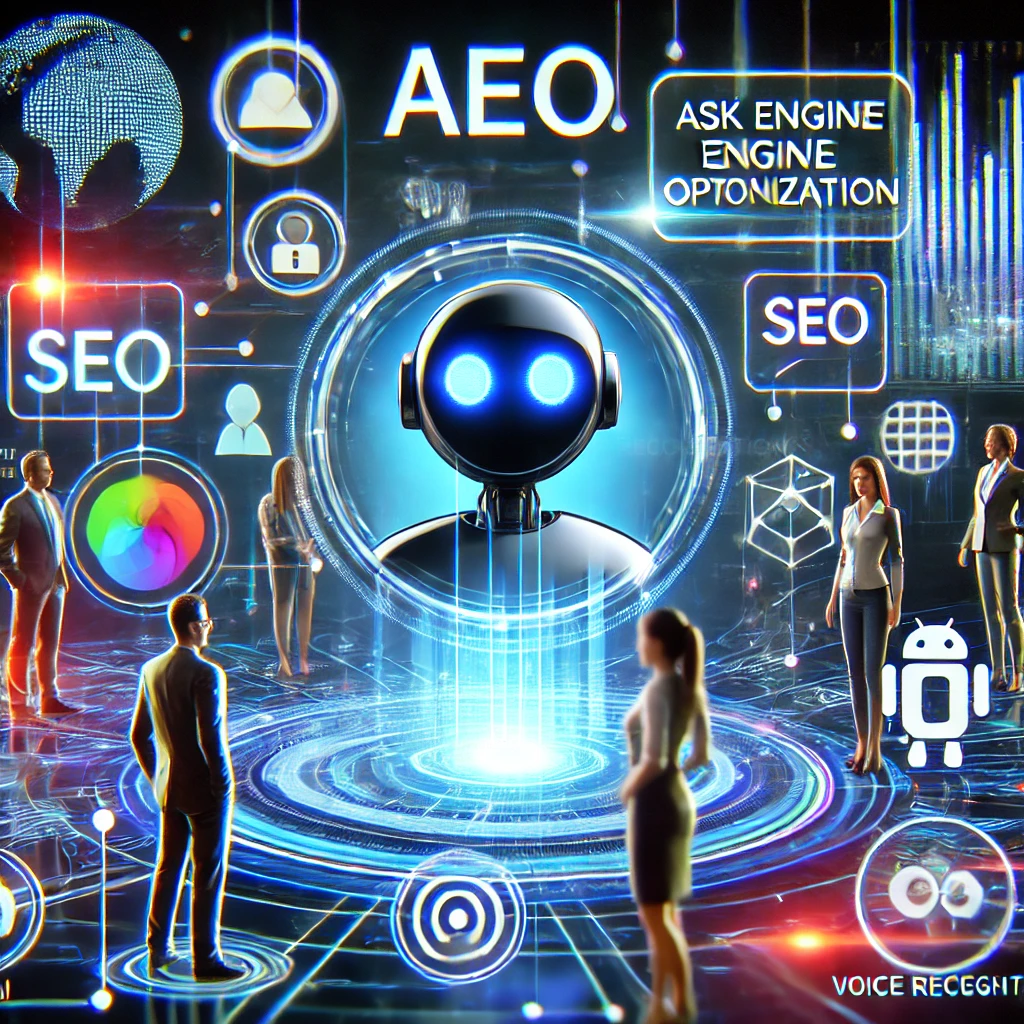Ask Engine Optimization (AEO): The Future of Digital Marketing
In the ever-evolving world of digital marketing, a new buzzword is making waves: Ask Engine Optimization (AEO), also known as Answer Engine Optimization. As artificial intelligence becomes a central part of how users interact with the internet, AEO is emerging as a game-changer that prioritizes user intent and relevance over traditional search rankings.
So, what exactly is AEO? How does it differ from traditional SEO? And why should marketers start paying attention? Let’s dive into this exciting trend and explore how AEO is transforming digital strategies.
What is Ask Engine Optimization (AEO)?
At its core, AEO is about optimizing content to align with how AI-powered systems like ChatGPT, CoPilot, and Google Assistant interpret and recommend information. While traditional SEO focuses on improving search rankings, AEO prioritizes delivering precise and relevant answers to users’ questions.
Think of it this way: users are increasingly asking conversational queries via AI chatbots, virtual assistants, and voice search. These systems are programmed to sift through content and highlight well-structured, contextually relevant responses. Simply appearing on the first page of a search engine isn’t enough anymore; your content needs to anticipate questions and provide clear answers that directly address user intent.
Why AEO Matters in the Age of AI
The rise of AI-powered tools is reshaping how people discover information. Instead of relying on search engines to sift through multiple results, users are turning to chatbots, voice assistants, and recommendation systems for instant answers.
How AI is Driving the Shift
- Generative AI Chatbots: Tools like ChatGPT and CoPilot engage users in natural conversations, delivering answers that feel personalized.
- Voice Search Assistants: Devices like Google Assistant, Alexa, and Siri process spoken queries and provide concise, on-the-spot responses.
For businesses, this means that being relevant and accessible in these AI-driven environments is more critical than ever. AEO helps your content stand out by meeting the structured and contextual requirements that AI systems prioritize.
How AEO Differs from Traditional SEO
While SEO is about optimizing for search engines, AEO focuses on answer engines—tools designed to provide immediate, accurate responses. Here’s how they differ:
| SEO | AEO |
|---|---|
| Focuses on search engine rankings | Focuses on user intent and relevance |
| Ranks based on keywords | Delivers based on structured answers |
| Goal: Increase website traffic | Goal: Provide direct, actionable answers |
Key Strategies for AEO Success
- Understand User Intent: Use tools like Google’s “People Also Ask” feature, AI chatbots, and customer queries to identify common questions. Design content to address these queries directly.
- Structure Content for AI: AI systems prefer content that’s easy to scan and process. Use:
- Clear headings
- Bullet points
- Concise answers
- FAQs
- Leverage Structured Data: Add schema markup to your site to make your content more readable for AI. Structured data helps your information appear in rich snippets or answer boxes.
- Optimize for Voice Search: With more users relying on voice assistants, create conversational content that matches natural language queries. Keep answers short and straightforward, especially for location-based searches like “near me.”
- Build an FAQ Page: Comprehensive FAQs are perfect for AEO. They provide direct answers and improve visibility in voice search and answer boxes.
- Focus on Trust and Authority: Consistently deliver accurate, valuable information to establish credibility. AI systems are more likely to recommend trustworthy sources.
Types of Answer Engines
- Generative AI Bots: These AI-driven systems, like ChatGPT, provide dynamic and conversational responses tailored to user queries. They excel in offering real-time, context-based information.
- Voice Search Assistants: Assistants like Alexa and Google Assistant rely on natural language processing (NLP) to deliver quick, accurate answers without requiring users to interact with a screen.
The Benefits of Embracing AEO
Switching to AEO offers a host of advantages:
- Increased AI-driven visibility: Your content is directly recommended to users.
- Relevance over rankings: AEO ensures your answers meet user needs, fostering trust and engagement.
- Future-proofing your strategy: Aligning with AI-powered discovery tools prepares your business for the next wave of digital marketing innovation.
Future-Proofing with AEO
AI systems like ChatGPT, Gemini, and CoPilot are transforming how users find information. Businesses that adapt now by implementing AEO will gain a significant competitive edge.
Why AEO is the Future of Digital Marketing
- AI prioritizes relevance: Algorithms now emphasize user intent over traditional ranking factors.
- Direct answers trump traffic: Users want solutions, not endless scrolling.
- Adaptability ensures longevity: AEO positions your content to thrive in an ever-changing landscape.
By adopting AEO strategies, you’ll not only stay relevant but also build stronger connections with your audience through personalized, impactful content.
Final Thoughts
As AI reshapes the digital landscape, Ask Engine Optimization (AEO) is no longer optional—it’s essential. The future of digital marketing lies in creating content that’s precisely relevant, highly structured, and user-centric.
So, are you ready to embrace AEO and secure your spot in the AI-driven world of tomorrow? It’s time to pivot from traditional SEO strategies and lead the charge into a smarter, more connected future.







